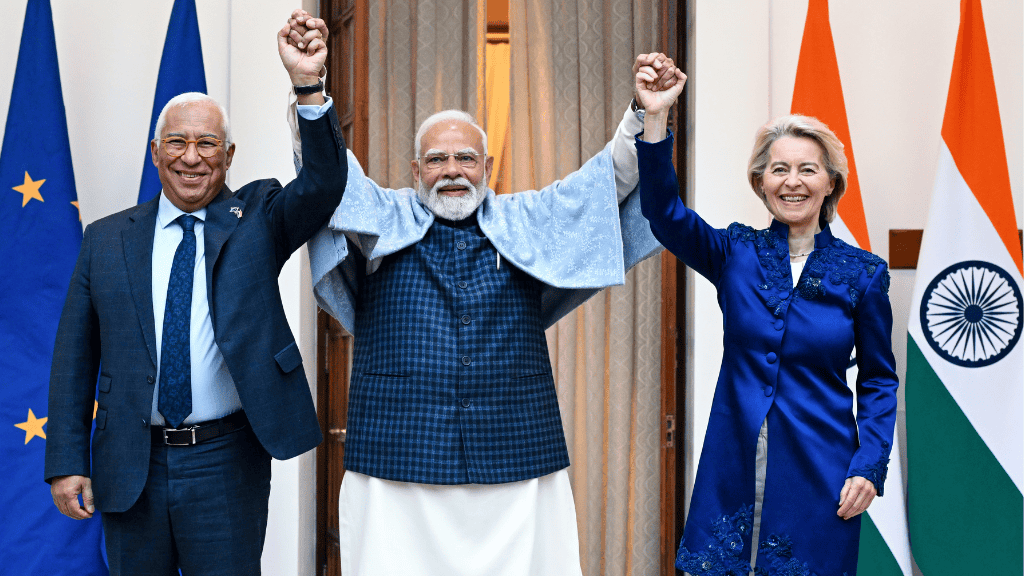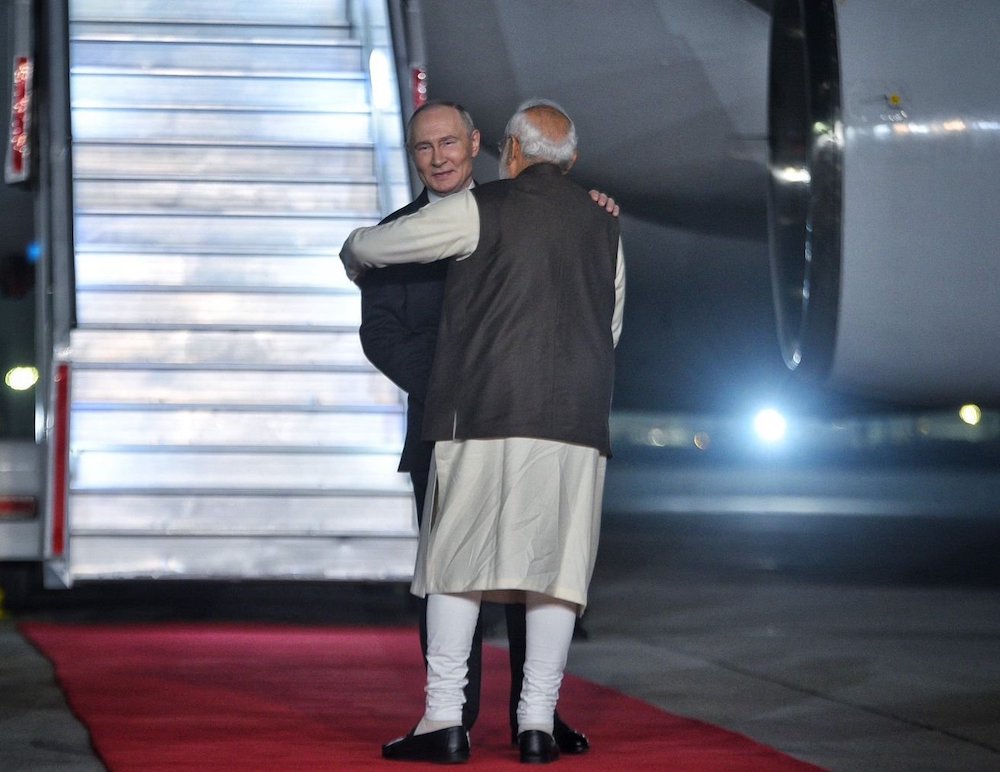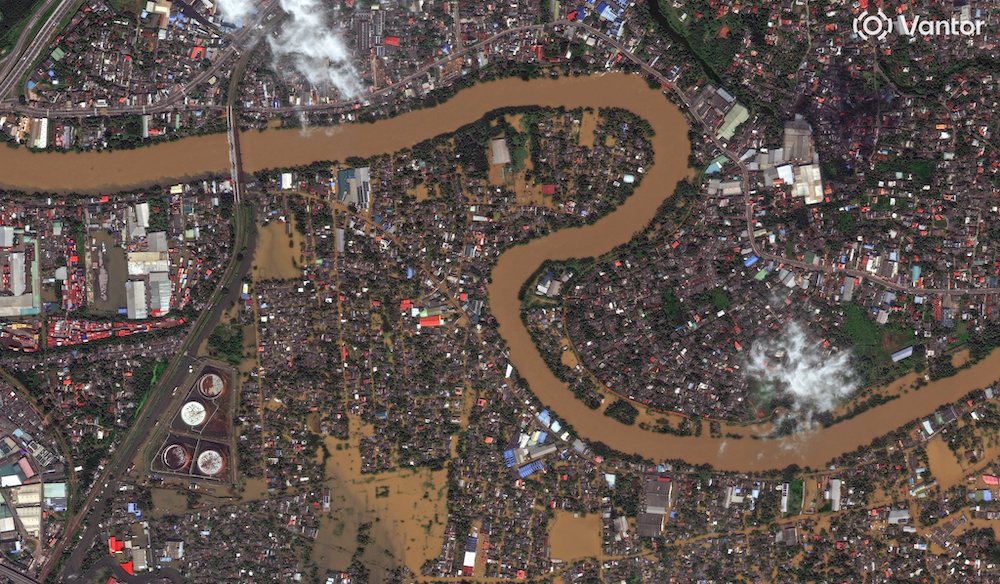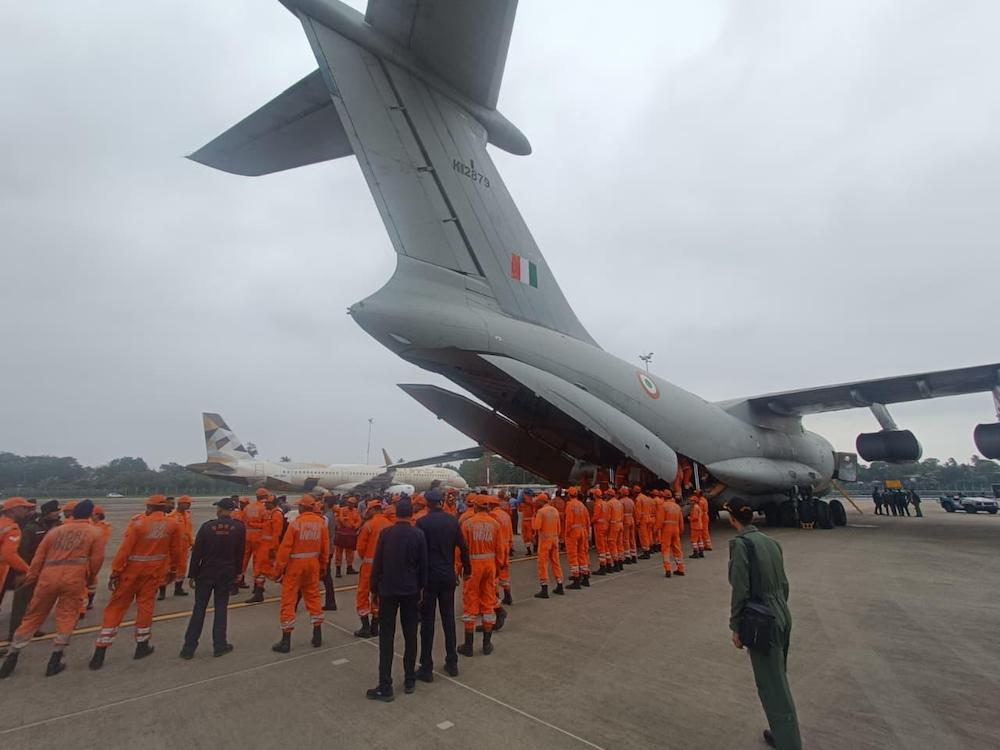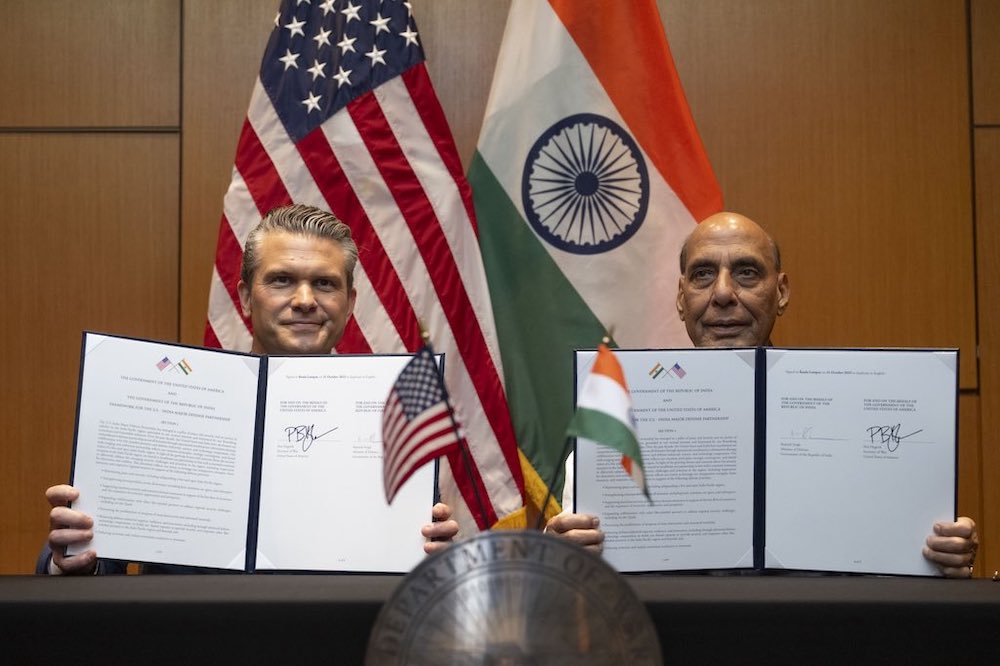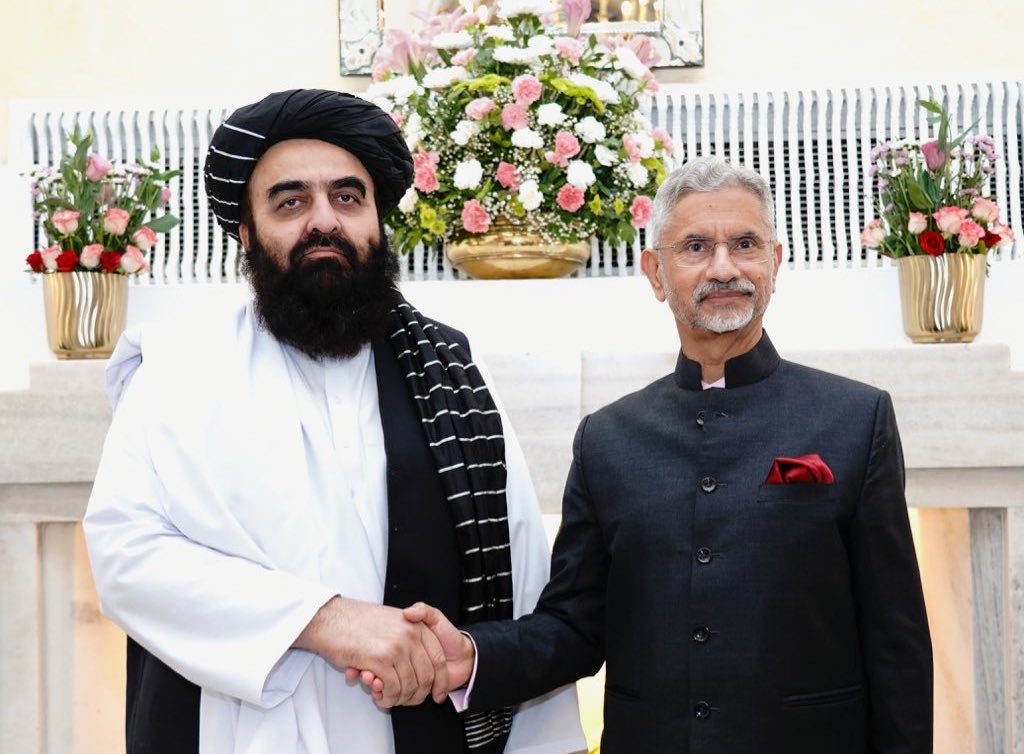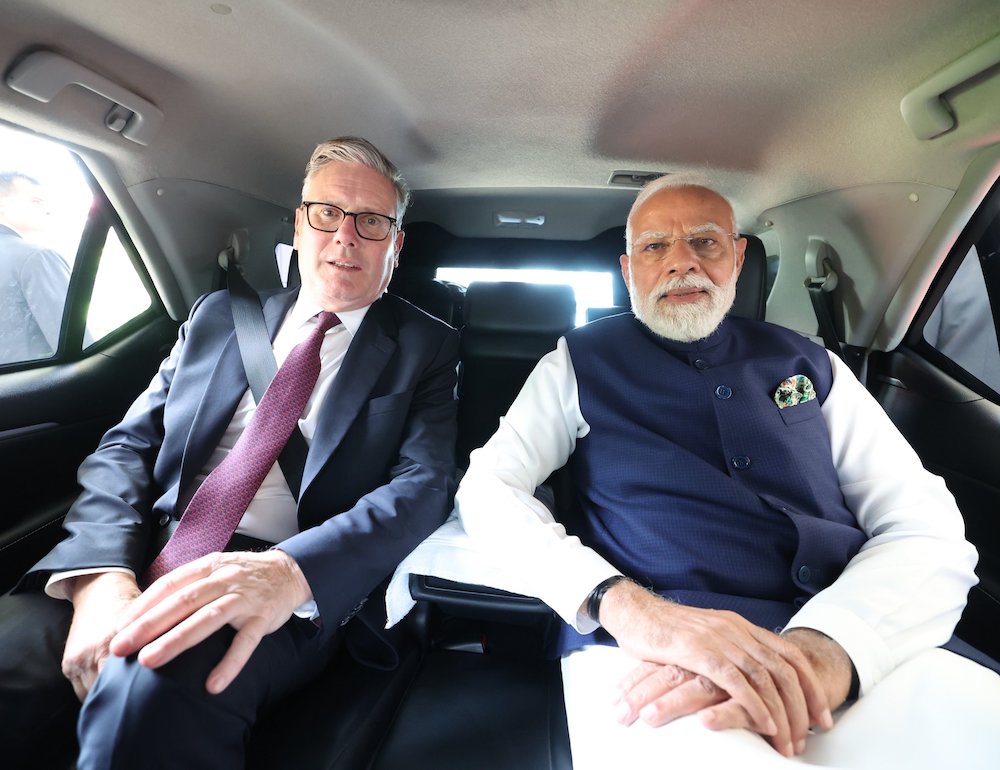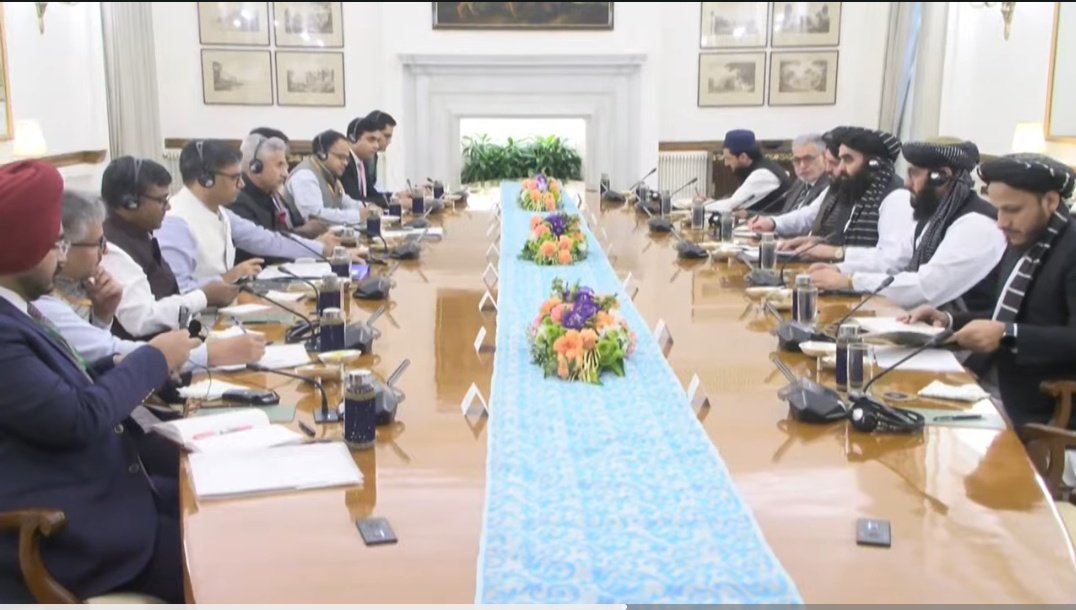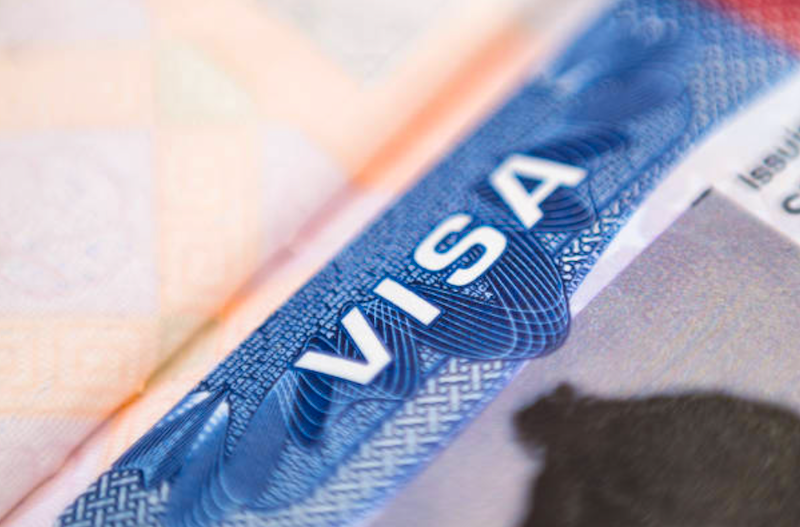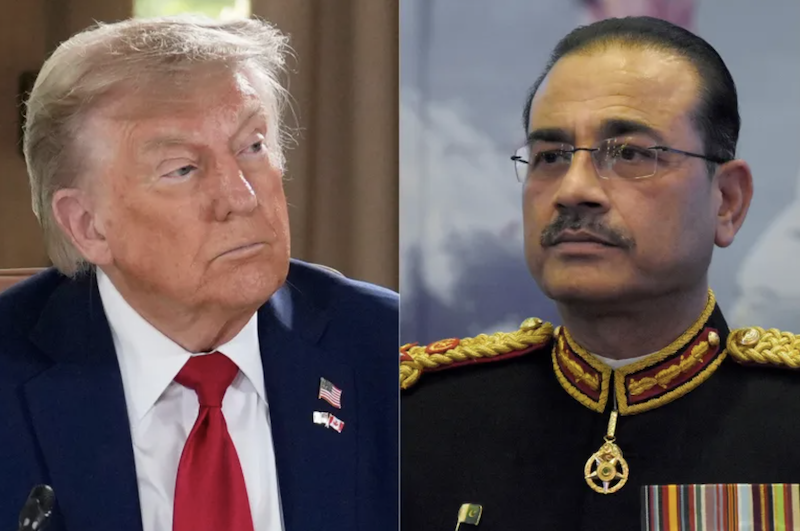 Donald Trump (L) and Asim Munir.
Donald Trump (L) and Asim Munir.
New Delhi: In an unprecedented and symbolically loaded move, the United States president, Donald Trump, hosted Pakistan’s army chief, Field Marshal Asim Munir, for a private luncheon at the White House on Wednesday. The meeting, which included the ISI director general, Lieutenant General Asim Malik and the US secretary of state, Marco Rubio, marks a strategic US re-engagement with Pakistan’s military establishment, bypassing the country’s civilian leadership entirely.
The closed-door event spanned nearly two hours and is widely interpreted as a signal of Washington’s intent to tap Islamabad’s intelligence networks, regional access, and military muscle as tensions escalate in the Middle East and South Asia.
In comments to the media shortly after the meeting, Trump made a stunning revelation that Munir, alongside prime minister, Narendra Modi, had recently helped avert what he described as a “nuclear war” between India and Pakistan after India launched Operation Sindoor. Earlier, Trump had claimed that he used trade to leverage a truce between the two countries, which India had rejected promptly.
“Two very smart people decided not to keep going with that war. That could have been a nuclear war,” Trump said. Although he didn’t offer further details, sources confirm that the White House had quietly tracked rising military tensions between the nuclear rivals throughout May. Pakistani and Indian military channels reportedly engaged in back-channel communication, culminating in a cessation of hostilities.
The meeting’s agenda stretched beyond security. According to officials familiar with the discussion, topics included rare-earth mineral exports from Pakistan, cryptocurrency regulation, bilateral trade incentives, and cooperative strategies to address regional terror threats, particularly along the Iran-Afghanistan-Pakistan arc. Munir also briefed the Americans on Pakistan’s recent cooperation in capturing an Islamic State (Khorasan) suspect involved in the 2021 Kabul airport bombing – an arrest reportedly coordinated directly with the US Central Command.
Trump praised this collaboration, citing it as evidence of the trust he seeks to rebuild with Islamabad.
The optics of the visit – Pakistan’s top general and intelligence chief dining with a US president while their own elected civilian government remained sidelined – were jarring for many international observers. Critics point to this as further evidence that Pakistan’s military remains the country’s ultimate decision-making authority. That Trump chose this route only underscores how personality-driven and transactional his foreign policy continues to be.
Globally, the meeting has been received with a mix of cautious curiosity and strategic recalibration. In Washington, the luncheon is being interpreted as a realpolitik manoeuvre: re-engage Pakistan to monitor Iran more closely, hedge China’s deepening influence in Pakistan via the China-Pakistan Economic Corridor (CPEC) and ensure US visibility in the evolving Afghanistan situation. Trump’s praise for Munir’s “discipline and professionalism” signalled a break from the post-Osama bin Laden distrust that had long defined US-Pakistan military ties.
In Europe, diplomats expressed unease about the US legitimizing military-first diplomacy and potentially undermining democratic institutions in Pakistan. Meanwhile, Beijing is watching closely. With Pakistan increasingly viewed as China’s “iron brother”, a sudden reentry of the US into Islamabad’s power corridors could disrupt Beijing’s strategic calculus, especially as Pakistan negotiates new arms deals, including for J-35 stealth fighters, with China.
India not impressed
However, the most visceral reaction came from New Delhi. Indian officials swiftly pushed back on Trump’s version of events. The foreign secretary, Vikram Misri, said the May de-escalation was the result of direct military-to-military communication with Pakistan, not US mediation. The Indian government issued a statement denying any external role and reaffirming that “no third party” had intervened in the ceasefire. Behind closed doors, however, Indian diplomats are said to be scrambling to assess whether this meeting represents a fundamental shift in US posture in South Asia.
The opposition, particularly the Congress party, didn’t mince words. Senior party leader Jairam Ramesh called the luncheon a “diplomatic disaster”, and accused Trump of hosting the “mastermind” of the Pahalgam terror attack, which killed 27 innocent tourists and a local pony operator on April 22. Shashi Tharoor echoed this view, warning that any engagement with Pakistani military leadership must come with “clear red lines” on terrorism. He reminded Washington that this is the same institution that once harboured Osama bin Laden in its garrison city Abbottabad, close to its military academy.
For India, the takeaways from the Trump-Munir luncheon are significant and sobering. First, the US is evidently open to engaging Pakistan’s military establishment independently of its civilian government, especially if it aligns with Washington’s broader interests in the Middle East and Central Asia. This challenges India’s long-held assumption that its strategic convergence with the US – especially via the Quad and Indo-Pacific dialogues – would automatically translate into alignment on Pakistan.
Experts view the Trump-Munir luncheon as not a one-off anomaly. They believe it was a deliberate recalibration and signal to the world that Washington is once again willing to entertain tactical partnerships over long-term values when the strategic payoff is high.

